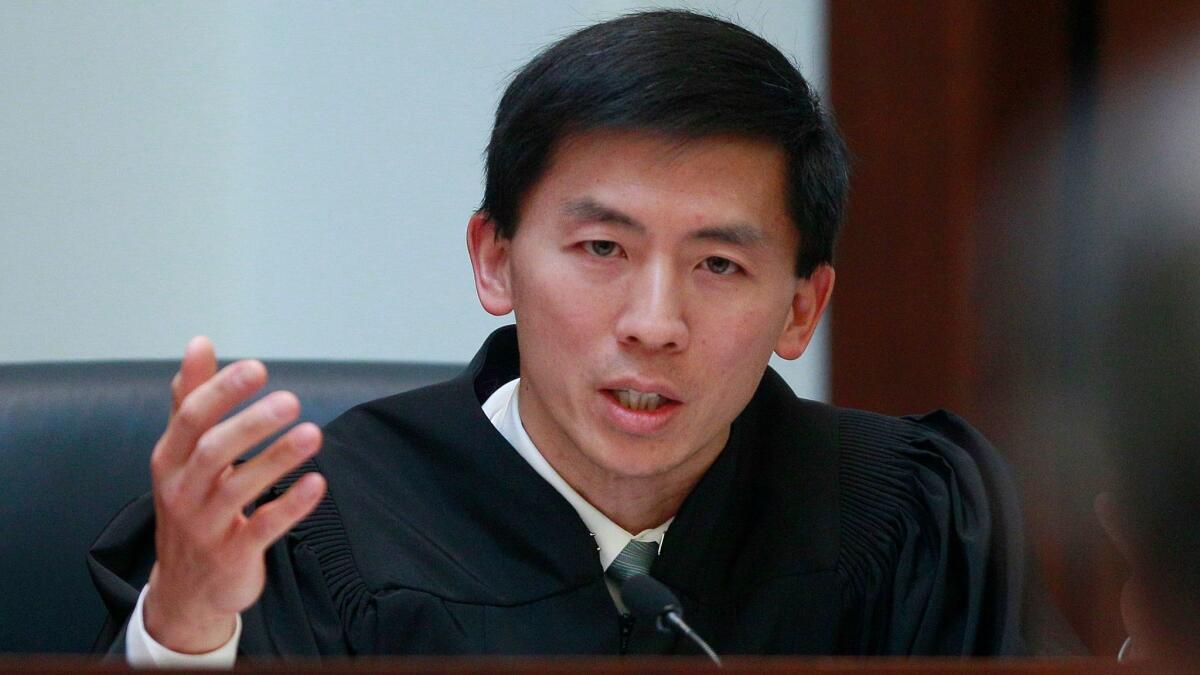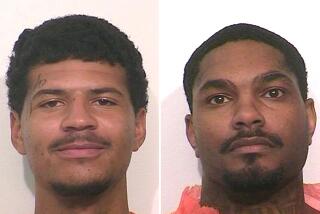California’s top court strikes down 50-year sentences for juveniles

The California Supreme Court decided Monday that juveniles may not be sentenced to 50 years or longer in prison for kidnapping, rape and sodomy.
In a 4-3 ruling, the state high court said a 50-year sentence for minors was “functionally equivalent” to life without parole.
“A young person who knows he or she has no chance to leave prison for 50 years ‘has little incentive to become a responsible individual,’” wrote Justice Goodwin Liu, citing a 2010 U.S. Supreme Court decision that severely restricted life sentences for juveniles.
The California court ruled in favor of Leonel Contreras and William Rodriguez, who were 16 when they attacked two teenage girls in San Diego County in 2011.
Rodriguez was sentenced to 50 years to life and Contreras to 58 years to life.
The court majority said the sentences constituted cruel and unusual punishment by depriving the inmates of a chance of parole until their senior years.
The U.S. Supreme Court’s “observation that juveniles have limited ability to consider consequences when making decisions applies to a sentence of 50 years to life just as it does to a sentence” of life without parole, Liu wrote.
“A judgment that a juvenile offender will be incorrigible for the next 50 years is no less ‘questionable’ than a judgment that the juvenile offender will be incorrigible ‘forever,’” Liu continued, citing the high court.
He was joined by Justices Ming W. Chin, Mariano-Florentino Cuéllar and Leondra R. Kruger.
Liu said the decision did not minimize “the gravity of defendants’ crimes or their lasting impact on the victims and their families.” Rodriguez and Contreras have plenty of work to do if they want to persuade a parole board some day to release them, the court said.
Chief Justice Tani Cantil-Sakauye, in a dissent, argued that lengthy sentences for juveniles are lawful as long as there is a chance for parole within their lifetimes.
“Profound life experiences still may lie ahead of someone released from prison at age 66 or 74,” she wrote.
She also argued that Rodriguez and Contreras might be able to obtain parole at the age of 60 under California’s Elderly Parole Program, designed to release aged inmates to save the state the costs of their healthcare.
Even without that program, she said, Rodriguez might be eligible for parole at the age of 57 by earning credits for good conduct.
“A sentence affording an opportunity for parole at age 60 offers a juvenile offender a substantial likelihood of spending not just a few, but many productive years outside of custody, if he or she demonstrates sufficient maturity to secure parole,” wrote Cantil-Sakauye.
She was joined by Justice Carol A. Corrigan and Los Angeles-based Court of Appeal Justice Sandy R. Kriegler, filling in because of a vacant seat on the state high court.
Twitter: @mauradolan
More to Read
Sign up for Essential California
The most important California stories and recommendations in your inbox every morning.
You may occasionally receive promotional content from the Los Angeles Times.











